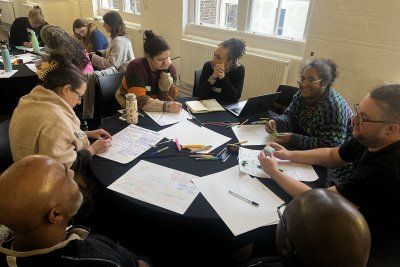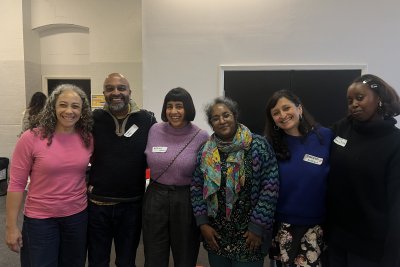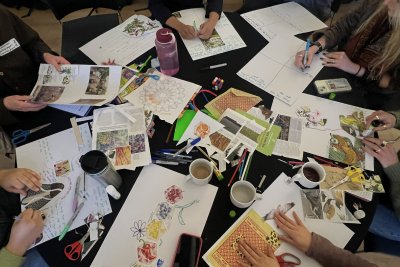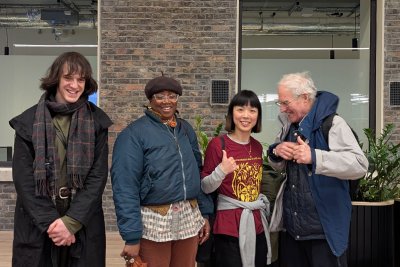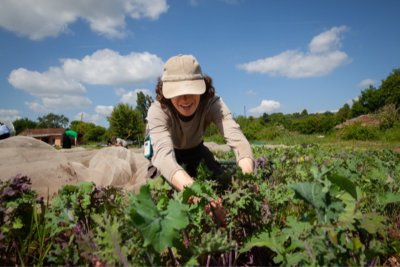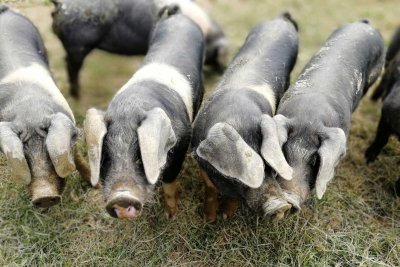During the early weeks of coronavirus in the UK, there was an obsessive focus on supermarkets and how they were handling the pandemic. It was as if traditional retail markets and small shops didn’t exist. Many markets and traders, however, continued to provide essential goods and services during the lockdown, sometimes responding quicker and in more creative ways than larger stores.
On June 15, indoor as well as outdoor markets can reopen, but it is unclear how the sector will pull through this difficult time. Research by the markets sector has found that during lockdown only around a third of markets remained even partially open and just 50% of traders expected to be able to access any of the government support for businesses.
About 40% of operators feared they would not be able to open again. But we believe that markets need to be – more than they ever have been – at the centre of local communities. And for this to happen, they will need support.
Throughout the country, markets are a vital cornerstone of town and city centres. Their impact is enormous. There are 1,173 markets in Britain, including traditional and specialist markets, with a collective turnover of £3.1 billion in 2017-18. Pre-crisis, there were 32,400 market traders and 9,000 events traders employing 24,000 staff.
Broad benefits
But the importance of markets takes in much broader horizons. They provide affordable, fresh and healthy food and other products and services. They are also entry points into the job market for many and spaces for people to develop entrepreneurial skills.
Markets also employ more people per sq metre of space than supermarkets, distribute their economic profits locally and add footfall and vibrancy to high streets. They build local wealth and promote a more sustainable economy and society by reducing waste, shortening supply chains and reducing car-based consumption.
Markets are social hubs. They are important for the development of community ties and trust, particularly between people from different age, ethnic and social backgrounds. It is this aspect that we have focused on in our ongoing research project, which examines the value of markets to local communities.
In a review of existing research and policy, we have found that markets tend to be valued in narrow economic terms and their broader benefits are seldom taken into account. Austerity-stricken local authorities, who operate the large majority of markets, have tended to neglect them. Or they reinvent them as gentrified leisure spaces for wealthy new customers, marginalising the more traditional clientele.
Community value
To uncover the community value of markets our research has focused on three case studies: Grainger Market in Newcastle, Bury Market and Queens Market in Newham, London. We’ve conducted interviews, focus groups with customers and a survey of 1,500 market users.
Our survey shows that market users are more likely to be women, elderly, live in poor neighbourhoods, not in full-time employment and not born in the UK. At the same time, they value their markets enormously, particularly for affordable fresh produce, and rely on them for food shopping. In terms of social interaction, markets are convivial spaces where customers feel overwhelmingly safe and welcome and receive support and information from traders and other customers.
What has particularly struck us is the emotional attachment that people have expressed for their market, of a sort one would be unlikely to find for a supermarket. In particular, the market occupies a central place in people’s social maps.
They told us things like: “I think the stallholders make it their business not just to talk to you but to remember what you’ve chatted about [and] to ask how things are. It is like a family, it’s like one big family”.
A customer at Bury market said: “When you come to the market, it’s a stroll. And people are very pleasant. And [you speak to people] that you wouldn’t normally speak to … I don’t know whether I’d do that in the supermarket.” Another said: “The market reminds us of back home, like in India.”
Economic and social recovery
Our research findings strongly suggest that markets can play a key role in the economic and social recovery from coronavirus. Markets will become even more crucial as customers who have lost jobs and have seen a drop in their incomes will need affordable food and other products more than ever.
As lockdown restrictions are relaxed, markets, while following the relevant sanitary protocols, can become spaces for social healing, where communities come together and people can interact again. This will be particularly important for elderly customers or those who live on their own for whom the market might be their only space for social contact.
Importantly, the COVID-19 crisis is an opportunity to promote more socially and environmentally sustainable and just local economies. Big supermarkets, by contrast, rely on unsustainable long global supply chains and prioritise profit for shareholders rather than local needs and livelihoods. There is now an opportunity to reposition markets not only as key pieces in the retail landscape but as community hubs for more inclusive economies.
Together with other groups we are pressing government to recognise the difficulties that markets currently face and take steps to support them. They are public resources and can play a central role in the promotion of more inclusive and sustainable town and city centres.
Sara González, Associate Professor in Human Critical Geography, University of Leeds and Paul Waley, Senior Research Fellow in Urban Geography, University of Leeds
This article is republished from The Conversation under a Creative Commons license. Read the original article.
Coronavirus Food Alert: Sustain's work on food resilience in the COVID-19 coronavirus pandemic.We are helping secure food for vulnerable people and supporting local emergency responses.


